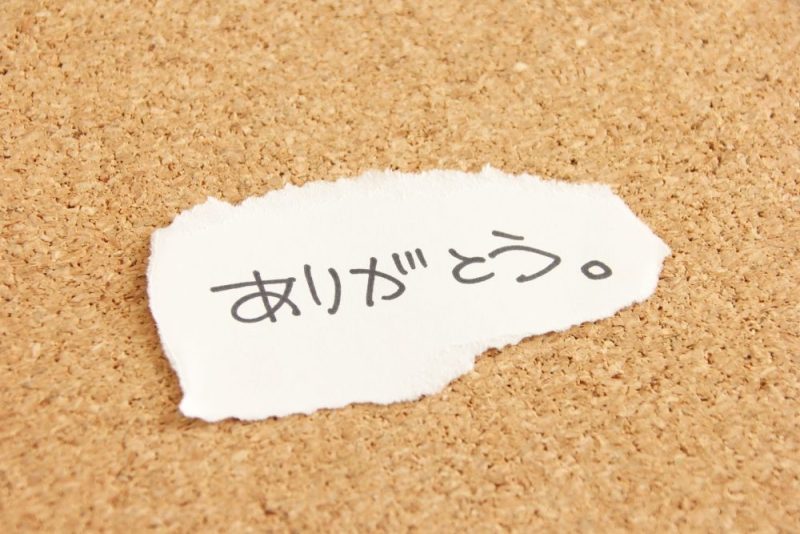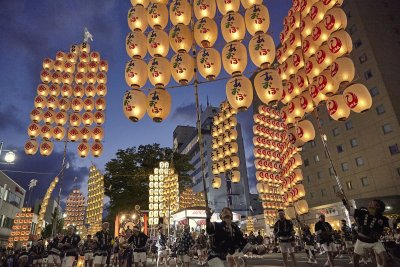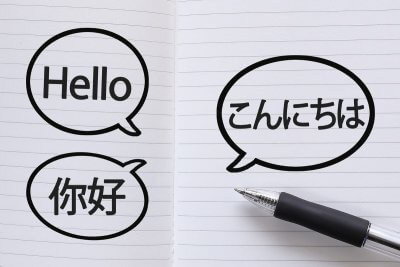Saying “thank you” in Japanese is not as straightforward as you might think. In fact, there’s more than one way to express your appreciation in this unique language. What’s more, there are a few aspects you need to consider before choosing the appropriate phrase to say thank you in Japanese.
For one, social status is quite significant in Japanese culture — depending on what social class you’re in, your response and way of talking to another person differs. Some phrases are better off being said to a friend, while others are more appropriate in an office setting.
Don’t panic — here’s a rundown of the 10 most convenient phrases to say thank you in Japanese that covers all sorts of situations.
While you’re learning Japanese, you can also check out our guide on 10 different ways to say “Hello”and “Goodbye.
10 Ways to Say Goodbye in Japanese
10 Ways to Say Hello in Japanese
1. Thank you in Japanese: Arigatou (ありがとう)
Of course, we have our “arigatou”. That’s the most basic way of saying thank you and the phrase you’ll often hear, especially in Japanese shows and anime. “Arigatou” is a casual phrase — much like “thanks” — that’s usually said to family members, friends, partners, and people of the same age or younger.
This phrase is quite flexible, though —you can also use “arigatou” to express thanks to people older than you. There’s one slight change, and that is to switch it to the polite form: arigatou gozaimasu (ありがとうございます). You can also use this form for strangers like restaurant or hotel staff.
Want a step higher to express your deepest appreciation? Go for “domo arigatou gozaimasu” (どもありがとうございます), which roughly translates to “thank you very much”.
2. Thank you in Japanese: Domo (どうも)
For some of the Japanese, an “arigatou” is still too much. Instead, they’ll cut the expression short and just respond with a simple “domo” and it’ll do the trick. You may recognize it from the previous phrase “domo arigatou gozaimasu” — it’s just taking out the “domo” part as a shorter version.
This phrase for saying thank you is extremely casual. It’s an even more casual way to say thank in Japanese than “arigatou”. Because of its extreme light tone, this phrase is often used with people at the same social status level as you or lower — like your friends and younger siblings. It’s also okay to say it to the cashier or restaurant staff.
Avoid using the phrase with your boss or anyone of higher social status than you. It’s rude because you didn’t take the time to thank them in the proper way.
3. Thank you in Japanese: Sumimasen (すみません)
This phrase to say thank you in Japanese is used quite often too. “Sumimasen” is usually associated as an apology or “excuse me” — fair enough, it does carry those meanings as well. However, this phrase doubles as both a sorry and a thank you.
In Japanese culture, it’s more common to apologize instead of just acknowledging that someone has gone through the trouble for you. It’s all part and parcel of the politeness that’s deeply rooted in the culture.
For example, if you drop something and a kind soul behind you picks it up and catches up with you to give you back your stuff, you can use “sumimasen” to acknowledge that they went through that trouble for doing something for you.

4. Thank you in Japanese: Kansha shimasu (感謝します)
Another way to say thank you is by using the phrase “kansha shimasu”. Unlike the first few phrases where it’s more often heard day to day, this phrase is usually written more than spoken. It also has a politer tone than the rest.
The usual setting you’ll be able to use this phrase is in emails. Sometimes, emails can start with “itsumo sapoto shiteitadaki, kansha shimasu” (いつもサポートしていただき、感謝します), which means “thank you for your continued support”.
5. Thank you in Japanese: Sankyu (サンキュ)
If the phrase doesn’t already sound familiar, let me break it down for you. The phrase “sankyu” is basically the Japanified version of the English phrase “thank you”. Because it’s a borrowed phrase and not an original Japanese word, it’s written in katakana instead of hiragana.
“Sankyu” is much, much more casual than any of the phrases introduced earlier. I would normally use this way of saying thank you to friends and people that I’m already acquainted and familiar with. Stay away from using this with your higher ups, definitely — and maybe even people you’re not so close with.
6. Thank you in Japanese: Kurete arigatou (~くれてありがとう)
This phrase to say thank you has a word that we’re already familiar with: “arigatou”. “Kurete arigatou” is an extensive version of the casual “arigatou”, and it expresses a deeper gratitude when used.
Let’s say your friend did you a favour and you want to convey your big appreciation for the help, you can say “tasukete kurete arigatou” (助けてくれてありがとう), which means “thank you so much for helping me”.
Similar with “arigatou”, “kurete arigatou” is just as flexible — it can be used casually and formally. To make it more polite, add “gozaimasu” (ございます) at the end of it: “tasukete kurete arigatou gozaimasu” (助けてくれてありがとうございます).
7. Thank you in Japanese: Azasu (あざす)
Of course, I have to introduce a slang phrase of thank you, and that is “azasu”. If you say “arigatou gozaimasu” fast enough, it’ll pretty much sound like “azasu” — and that’s how the slang form came about.
This goes without saying, but like any other slang words, it has the most casual and lightest tone, so maybe avoid using it to your teacher or higher-ups. You’ll hear this from your friends and family, and especially among the younger crowd.
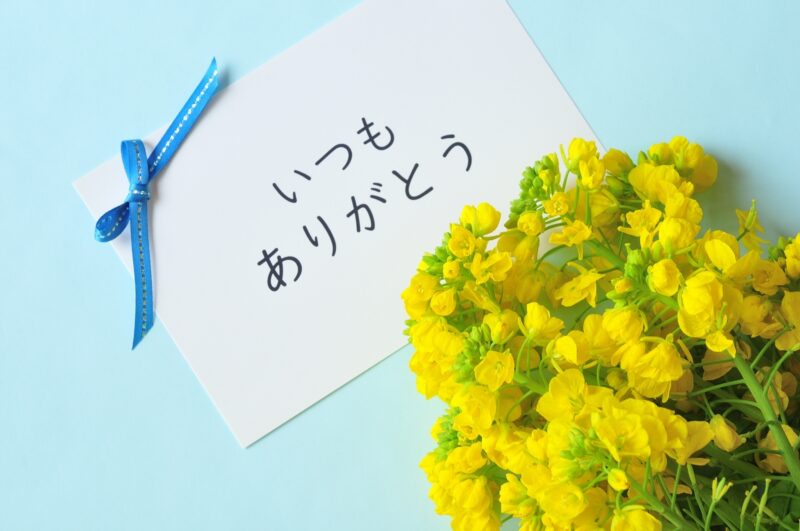
8. Thank you in Japanese: Sumanai (すまない)
You know how “azasu” is a slang version of “arigatou gozaimasu”? Well, “sumanai” is more or less the slang version of “sumimasen”. You’ll probably hear guys using this phrase to say thank you more often than girls, but it’s by no means a gendered phrase — you’ll just be perceived to have a slightly harsher tone.
Similarly, this is extremely casual, so stick to using this among friends — never to your boss!
9. Thank you in Japanese: Osoreirimasu (恐れ入ります)
Jumping back into the formal mix of thank you phrases in Japanese is “osoreirimasu”. I’d say, out of the list of phrases to say thank you, this would be the most formal of them all. You don’t hear it casually every day — in fact, you don’t even hear it every day in the office setting.
It does only pop up in the more formal situations like meetings and talking to your higher-ups. It’s comparable to “sumimasen” but with a level up. The only difference between the two is that “sumimasen” can be used to apologise but “osoreirimasu” can’t — it’s only used to acknowledge the trouble someone has done for you.
It’ll be rather unusual to say it to your friends or family, so reserve it for customers and your bosses — you’ll be sure to impress them.
10. Thank you in Japanese: Otsukaresama (お疲れ様)
This last one doesn’t only have one meaning — it’s a pretty flexible phrase — but it can be used to thank someone, specifically to thank them for their hard work. You can use it with basically anyone, from your superiors and co-workers to friends and family.
Usually, after a long day of hard work, this phrase is like a subtle pick-me-up. You can also use this as a greeting, but not like how you use “ohayou” (おはよう) — you’re acknowledging the other person’s hard work before starting a conversation.
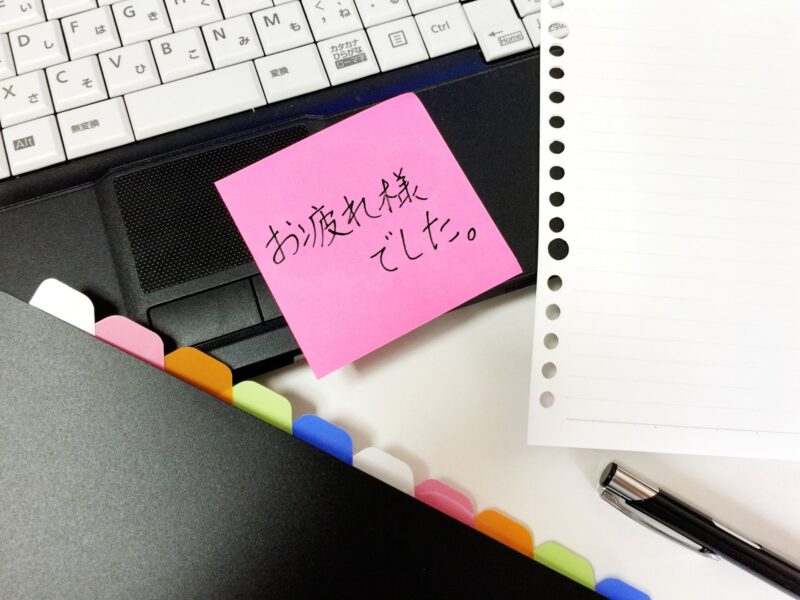
Who would’ve thought that Japan has more than a single way to say thank you in Japanese — and they all have specific settings that they’re appropriate for. So, next time, instead of going straight for the “arigatou”, run through this list of convenient Japanese phrases to say thank you and pick the one that’s best!
That wasn’t so hard, right? Now you should have enough confidence to try 10 interesting ways to say “

Azra Syakirah
Usually tucked away in a cafe anywhere she goes, Azra Syakirah is a fashion designer and entrepreneur living in Tokyo, Japan. Born and bred in Singapore, her heart belongs to the world. Also a language enthusiast, she virtually scribbles her thoughts on a blog as well as freelances as a writer.
*Disclaimer:
 0
0

